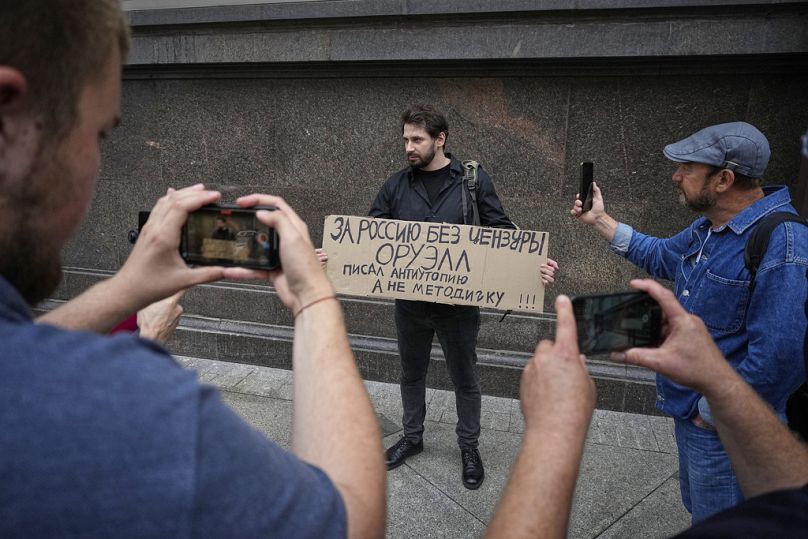Russian lawmakers voted Tuesday on legislation criminalising "searching for extremist content online", marking the first time Moscow will hit internet users for consuming rather than distributing materials deemed as banned in further crackdown on dissent.
The law targets internet users who knowingly search for content from the Russian extremist register, which contains 5,473 entries and is maintained by the Ministry of Justice.
The definition of "extremism" in Russia is open to interpretation, and it enables the authorities to target minorities, political opposition, or stifle freedom of expression or assembly.
For example, in 2023, Russia designated a broadly defined “international public LGBT movement” as "extremist", allowing for courts to arbitrarily target any member of the LGBTQ+ community.
Individual users face fines of 3,000 to 5,000 rubles (some €30 to €50) for searching for content deemed "extremist".
Furthermore, advertising for VPN services is punishable by fines ranging from 50,000 to 500,000 rubles. VPN providers will also face fines if they enable access to blocked websites.
The legislation also enables law enforcement agencies to request users' browsing data from search engines, telecoms, and mobile phone operators.
A handful of demonstrators appeared in front of the Duma building in Moscow on Tuesday. The protesters carried signs reading "For a Russia without censorship". Several people were arrested, including journalists from two media outlets.

In the meantime, social media users began sharing recommendations on how to protect themselves from the new law. These include avoiding Russian search engines, such as Yandex, using reliable VPN providers, and deactivating biometric identification features like fingerprint and face IDs on mobile devices.
Following the Duma vote, the law is to be submitted to the Federation Council before being sent to President Vladimir Putin for signature.
Putin had previously instructed the government to propose additional restrictions on software from "unfriendly countries". The popular messaging service WhatsApp could be banned under the expanded measures.
The changes represent Russia's latest internet restriction, following measures taken against social media platforms and foreign technology companies since Moscow's full-scale invasion of Ukraine in early 2022.







